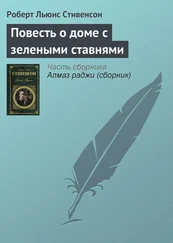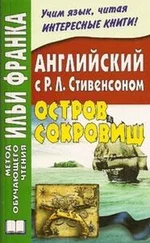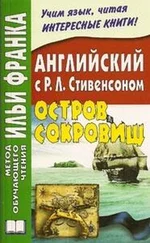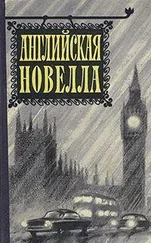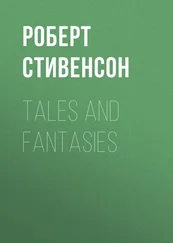Роберт Стивенсон - An Inland Voyage
Здесь есть возможность читать онлайн «Роберт Стивенсон - An Inland Voyage» — ознакомительный отрывок электронной книги совершенно бесплатно, а после прочтения отрывка купить полную версию. В некоторых случаях можно слушать аудио, скачать через торрент в формате fb2 и присутствует краткое содержание. Жанр: literature_19, foreign_antique, Путешествия и география, на английском языке. Описание произведения, (предисловие) а так же отзывы посетителей доступны на портале библиотеки ЛибКат.
- Название:An Inland Voyage
- Автор:
- Жанр:
- Год:неизвестен
- ISBN:нет данных
- Рейтинг книги:3 / 5. Голосов: 1
-
Избранное:Добавить в избранное
- Отзывы:
-
Ваша оценка:
- 60
- 1
- 2
- 3
- 4
- 5
An Inland Voyage: краткое содержание, описание и аннотация
Предлагаем к чтению аннотацию, описание, краткое содержание или предисловие (зависит от того, что написал сам автор книги «An Inland Voyage»). Если вы не нашли необходимую информацию о книге — напишите в комментариях, мы постараемся отыскать её.
An Inland Voyage — читать онлайн ознакомительный отрывок
Ниже представлен текст книги, разбитый по страницам. Система сохранения места последней прочитанной страницы, позволяет с удобством читать онлайн бесплатно книгу «An Inland Voyage», без необходимости каждый раз заново искать на чём Вы остановились. Поставьте закладку, и сможете в любой момент перейти на страницу, на которой закончили чтение.
Интервал:
Закладка:
These were the words. They were all employed over the frivolous mercantile concerns of Belgium during the day; but in the evening they found some hours for the serious concerns of life. I may have a wrong idea of wisdom, but I think that was a very wise remark. People connected with literature and philosophy are busy all their days in getting rid of second-hand notions and false standards. It is their profession, in the sweat of their brows, by dogged thinking, to recover their old fresh view of life, and distinguish what they really and originally like, from what they have only learned to tolerate perforce. And these Royal Nautical Sportsmen had the distinction still quite legible in their hearts. They had still those clean perceptions of what is nice and nasty, what is interesting and what is dull, which envious old gentlemen refer to as illusions. The nightmare illusion of middle age, the bear’s hug of custom gradually squeezing the life out of a man’s soul, had not yet begun for these happy-starred young Belgians. They still knew that the interest they took in their business was a trifling affair compared to their spontaneous, long-suffering affection for nautical sports. To know what you prefer, instead of humbly saying Amen to what the world tells you you ought to prefer, is to have kept your soul alive. Such a man may be generous; he may be honest in something more than the commercial sense; he may love his friends with an elective, personal sympathy, and not accept them as an adjunct of the station to which he has been called. He may be a man, in short, acting on his own instincts, keeping in his own shape that God made him in; and not a mere crank in the social engine-house, welded on principles that he does not understand, and for purposes that he does not care for.
For will any one dare to tell me that business is more entertaining than fooling among boats? He must have never seen a boat, or never seen an office, who says so. And for certain the one is a great deal better for the health. There should be nothing so much a man’s business as his amusements. Nothing but money-grubbing can be put forward to the contrary; no one but
Mammon, the least erected spirit that fell
From Heaven,
durst risk a word in answer. It is but a lying cant that would represent the merchant and the banker as people disinterestedly toiling for mankind, and then most useful when they are most absorbed in their transactions; for the man is more important than his services. And when my Royal Nautical Sportsman shall have so far fallen from his hopeful youth that he cannot pluck up an enthusiasm over anything but his ledger, I venture to doubt whether he will be near so nice a fellow, and whether he would welcome, with so good a grace, a couple of drenched Englishmen paddling into Brussels in the dusk.
When we had changed our wet clothes and drunk a glass of pale ale to the Club’s prosperity, one of their number escorted us to an hotel. He would not join us at our dinner, but he had no objection to a glass of wine. Enthusiasm is very wearing; and I begin to understand why prophets were unpopular in Judæa, where they were best known. For three stricken hours did this excellent young man sit beside us to dilate on boats and boat-races; and before he left, he was kind enough to order our bedroom candles.
We endeavoured now and again to change the subject; but the diversion did not last a moment: the Royal Nautical Sportsman bridled, shied, answered the question, and then breasted once more into the swelling tide of his subject. I call it his subject; but I think it was he who was subjected. The Arethusa , who holds all racing as a creature of the devil, found himself in a pitiful dilemma. He durst not own his ignorance for the honour of Old England, and spoke away about English clubs and English oarsmen whose fame had never before come to his ears. Several times, and, once above all, on the question of sliding-seats, he was within an ace of exposure. As for the Cigarette , who has rowed races in the heat of his blood, but now disowns these slips of his wanton youth, his case was still more desperate; for the Royal Nautical proposed that he should take an oar in one of their eights on the morrow, to compare the English with the Belgian stroke. I could see my friend perspiring in his chair whenever that particular topic came up. And there was yet another proposal which had the same effect on both of us. It appeared that the champion canoeist of Europe (as well as most other champions) was a Royal Nautical Sportsman. And if we would only wait until the Sunday, this infernal paddler would be so condescending as to accompany us on our next stage. Neither of us had the least desire to drive the coursers of the sun against Apollo.
When the young man was gone, we countermanded our candles, and ordered some brandy and water. The great billows had gone over our head. The Royal Nautical Sportsmen were as nice young fellows as a man would wish to see, but they were a trifle too young and a thought too nautical for us. We began to see that we were old and cynical; we liked ease and the agreeable rambling of the human mind about this and the other subject; we did not want to disgrace our native land by messing an eight, or toiling pitifully in the wake of the champion canoeist. In short, we had recourse to flight. It seemed ungrateful, but we tried to make that good on a card loaded with sincere compliments. And indeed it was no time for scruples; we seemed to feel the hot breath of the champion on our necks.
AT MAUBEUGE
Partly from the terror we had of our good friends the Royal Nauticals, partly from the fact that there were no fewer than fifty-five locks between Brussels and Charleroi, we concluded that we should travel by train across the frontier, boats and all. Fifty-five locks in a day’s journey was pretty well tantamount to trudging the whole distance on foot, with the canoes upon our shoulders, an object of astonishment to the trees on the canal side, and of honest derision to all right-thinking children.
To pass the frontier, even in a train, is a difficult matter for the Arethusa . He is somehow or other a marked man for the official eye. Wherever he journeys, there are the officers gathered together. Treaties are solemnly signed, foreign ministers, ambassadors, and consuls sit throned in state from China to Peru, and the Union Jack flutters on all the winds of heaven. Under these safeguards, portly clergymen, school-mistresses, gentlemen in grey tweed suits, and all the ruck and rabble of British touristry pour unhindered, Murray in hand, over the railways of the Continent, and yet the slim person of the Arethusa is taken in the meshes, while these great fish go on their way rejoicing. If he travels without a passport, he is cast, without any figure about the matter, into noisome dungeons: if his papers are in order, he is suffered to go his way indeed, but not until he has been humiliated by a general incredulity. He is a born British subject, yet he has never succeeded in persuading a single official of his nationality. He flatters himself he is indifferent honest; yet he is rarely taken for anything better than a spy, and there is no absurd and disreputable means of livelihood but has been attributed to him in some heat of official or popular distrust..
For the life of me I cannot understand it. I too have been knolled to church, and sat at good men’s feasts; but I bear no mark of it. I am as strange as a Jack Indian to their official spectacles. I might come from any part of the globe, it seems, except from where I do. My ancestors have laboured in vain, and the glorious Constitution cannot protect me in my walks abroad. It is a great thing, believe me, to present a good normal type of the nation you belong to.
Nobody else was asked for his papers on the way to Maubeuge; but I was; and although I clung to my rights, I had to choose at last between accepting the humiliation and being left behind by the train. I was sorry to give way; but I wanted to get to Maubeuge.
Читать дальшеИнтервал:
Закладка:
Похожие книги на «An Inland Voyage»
Представляем Вашему вниманию похожие книги на «An Inland Voyage» списком для выбора. Мы отобрали схожую по названию и смыслу литературу в надежде предоставить читателям больше вариантов отыскать новые, интересные, ещё непрочитанные произведения.
Обсуждение, отзывы о книге «An Inland Voyage» и просто собственные мнения читателей. Оставьте ваши комментарии, напишите, что Вы думаете о произведении, его смысле или главных героях. Укажите что конкретно понравилось, а что нет, и почему Вы так считаете.


